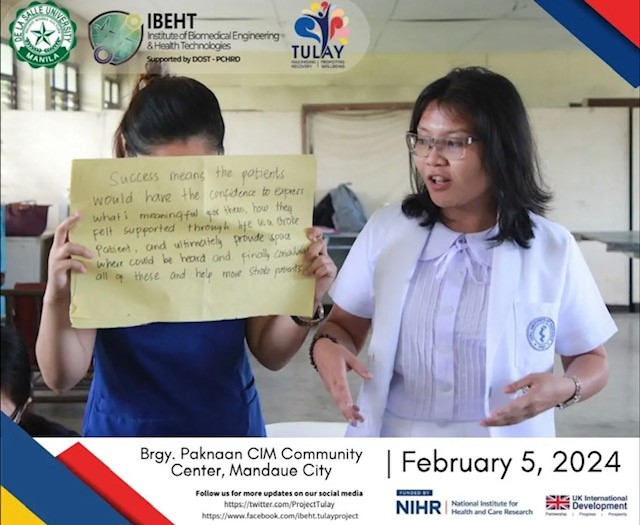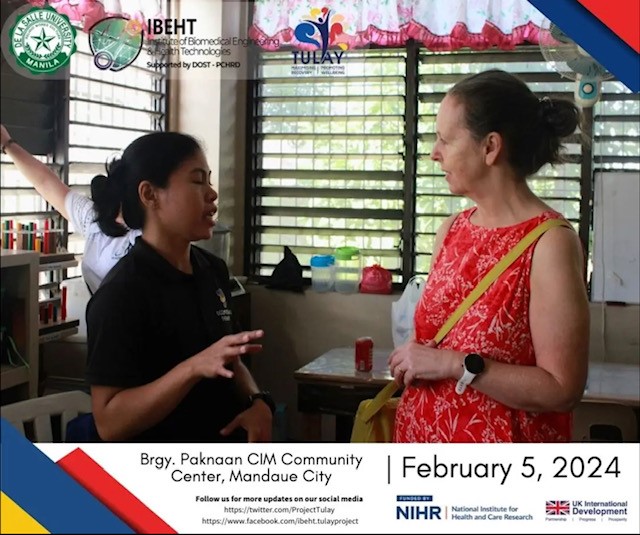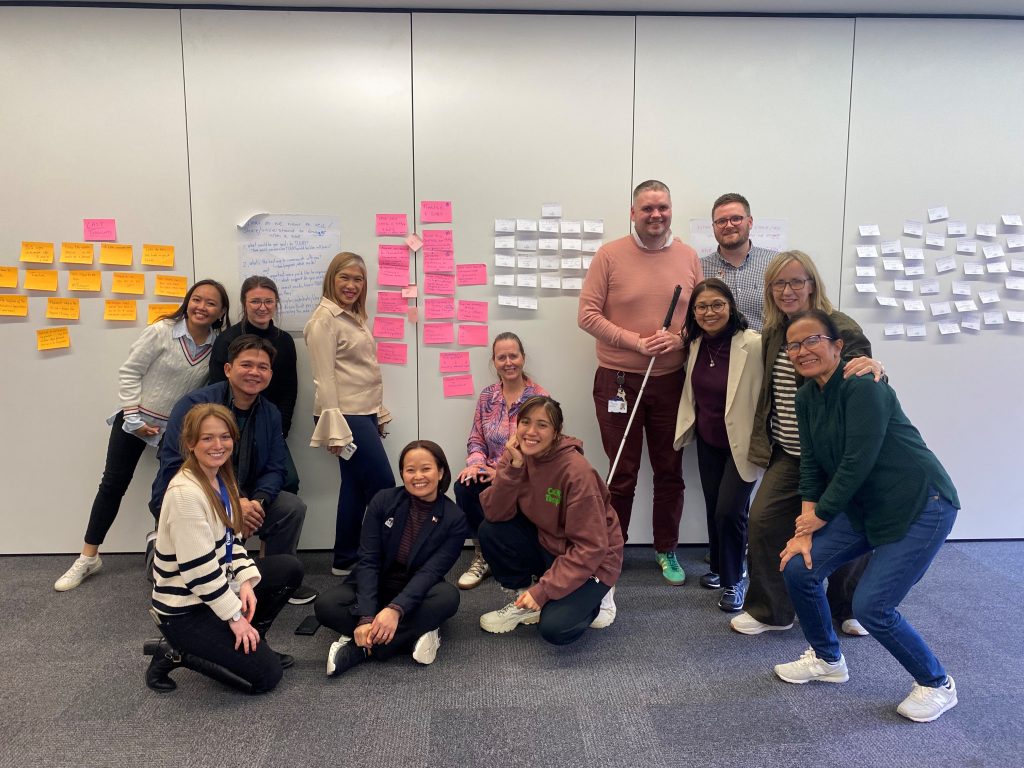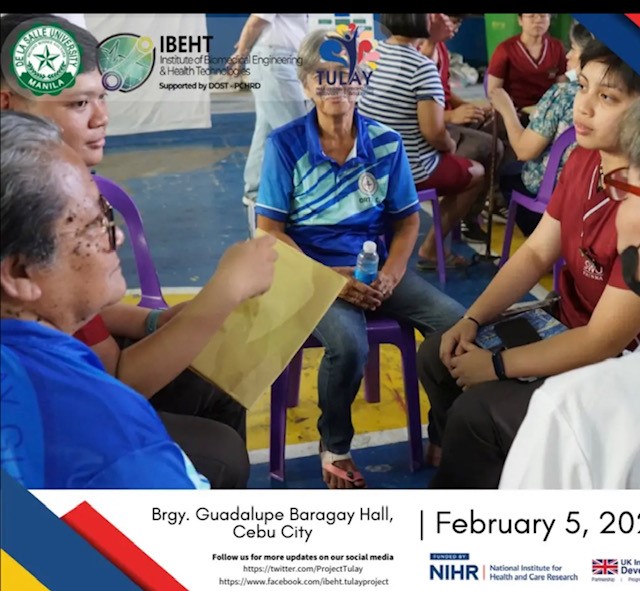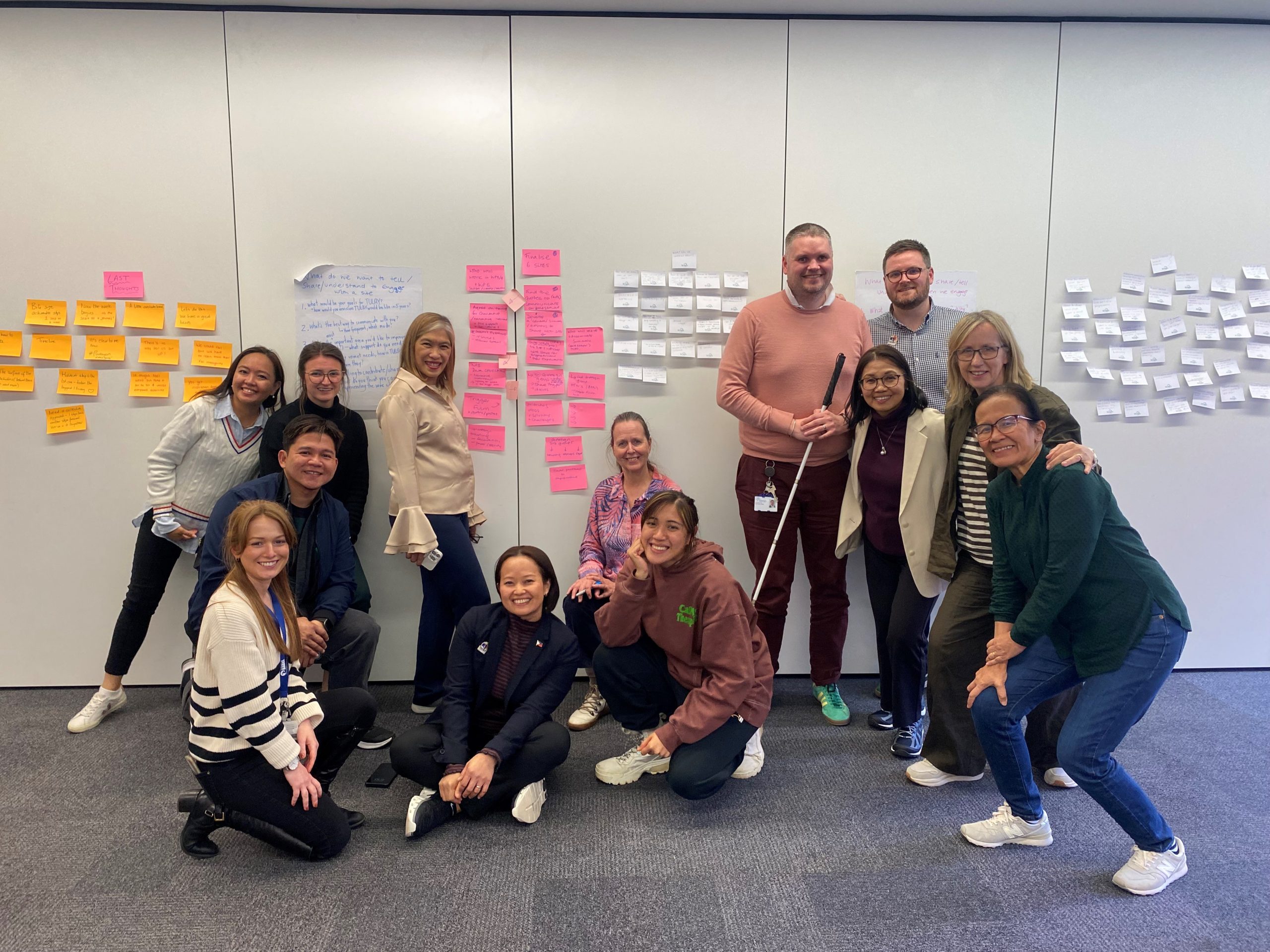
Curiosity, Connections, and Padayon: Building Bridges for Stroke Support in the Philippines
4th September 2025
How can a series of Zoom calls, bringing together over 20 people separated by more than 6500 miles, lead to a ground breaking stroke support initiative? Through a shared vision, evidence-based approaches, and a deep commitment to co-design, the TULAY project is showing how powerful collaboration can be.
What is TULAY?
Tulong, Ugnayan ng Lingap At gabaY (TULAY), which translates to “help link compassionate care and guidance”, is a four-year research project funded by the National Institute for Health Research (NIHR) and UK International Aid, with an aim to co-design a new model of stroke support tailored to the Philippines’ unique cultural and healthcare context.
Inspired by the Bridges Self-Management approach, the project integrates co-design principles to create support systems for stroke survivors, carers, and healthcare providers. But at its core, TULAY is about stories; those shared, rediscovered, and, in some cases, spoken aloud for the very first time.
The Power of Storytelling
Stories have proven to be a unifying and motivating force – bringing people together across islands, disciplines, and healthcare levels. They’ve helped stroke survivors rediscover purpose, enabled carers to feel seen and heard, and empowered providers to reimagine how support can be offered, as one Filipino team member reflected:
“Though we were new to this (Bridges), it wasn’t hard to adapt. What inspired us most was the power of telling stories, narratives, journeys, and how they can help others. I’m hopeful we will continue, and as I always say, ‘Padayon’.” (Padayon is a Visayan word that means “to continue” or “move forward with purpose.”)
Context Matters: Stroke Care in the Philippines
In countries with established healthcare systems, it’s easy to focus on limitations or burdens. But in low- and middle-income countries like the Philippines, where stroke incidence is rising, particularly among younger populations, the challenge is magnified by geographic and systemic complexities.
- The Philippines is an archipelago of over 7,000 islands.
- Healthcare is often decentralised, with more than 42,000 Barangays (villages), many relying on volunteer health workers with minimal training.
- Access to stroke rehabilitation and support is inequitable across rural and urban regions.
Yet, the Philippines brings unique strengths to this challenge: a strong sense of community, spirituality, and cultural connectedness. These qualities have become the foundation of the TULAY approach.
What is Bridges?
The Bridges Self-Management approach was developed in the UK and focuses on equipping healthcare professionals to support individuals in building confidence, capacity, and knowledge to manage their health. Importantly it focusses on the things most meaningful to people, shifts away from paternalistic care, instead fostering collaboration and personalisation.
Bridges emphasises:
- Working with, not for people.
- Listening deeply to individual experiences.
- Creating supportive enabling relationships from the first healthcare interaction.
TULAY has drawn on Bridges principles and values for the Philippines, to start to build a model that feels culturally relevant and practical and one that reflects the lives, challenges, and strengths of stroke survivors, household carers (families) as well as Barangay care providers.
Co-Design in Action
Before TULAY, co-design was not a familiar concept in the Philippines. But over time, the project has shown that when you create safe, supportive spaces, people are not only willing to share, they become involved in creating and co-designing the support packages and motivated help drive change.
Stroke survivors, carers, and health workers have:
- Engaged with new training models
- Helped create culturally relevant support resources
- Discovered the power of collective problem-solving
The research team has also evolved. They’ve learned that co-design begins with deep listening, and that meaningful support starts by understanding someone’s story, not just their health condition and symptoms.
The Road Ahead
TULAY is now three years in, and the journey continues, across regions, languages, and healthcare systems. While uncertainty remains about how the model will grow post-funding, the team is focused on continuing to refine, listen, and learn.
As Annah, a member of the research team and stroke survivor, powerfully shared:
“Since joining TULAY and experiencing Bridges and co-design, I keep thinking ‘I wish this had been available when I had my stroke.’ The sense of empowerment patients feel can be a real catalyst for recovery. We see it every time someone shares their story.”
Final Thoughts
TULAY is more than a research project, it’s a movement rooted in curiosity, connection, and continuity. It’s building bridges between people, sectors, and islands, anchored in a belief that every story matters, and that meaningful stroke support can be both personal and powerful.
One step at a time. Padayon.
Fiona (UK team), Annah and DJ (Philippines team)
